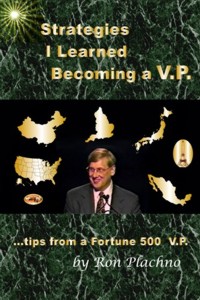| |
PRIORITIZE OR DIE?
Mostly a direct quote from the book:
There have been a number of
books published about Abraham Lincoln, who was a most interesting
person. Many of them speak of things he did not do well. Abe for
example, seemed to have a very hard time finding the correct general
for his war. And as we also know, he seemed to choose the wrong
guard for his evening at the Ford Theater. In this last case, I am
told that the guard wandered off since the guard had other things to
do. But what Lincoln did do right I believe are the important
things. And those important things were two: He knew that slavery
was wrong and he was going to get rid of it. He also knew that the
union had to stay together and he ensured that was going to also
happen. And so what Lincoln did was to prioritize. He seemed to know
that he was never going to get everything correct. He decided to get
two items correct that he knew must happen. And he has gone down in
US history as one of the greatest if not simply the greatest ever US
president. And that was not based on 10,000 things. It was based on
two important goals and victories. We can learn much from Lincoln.
Elsewhere in this book I spoke of my own career and how I moved
myself from Engineering one day abruptly into Manufacturing. My goal
at the time was to go from being a horrible manager into a good one
and as such I wanted a fresh start. And I also in this book say that
I learn from others. In my process of moving, I had asked the
receiving manager to give me a minor promotion to make my move “look
good." He did do that. I became an E10 in this company, something
that seemed to have no great definition but was in the twilight zone
between being a section manager (over group leader managers) but not
yet an E11 – an Engineering Manager level. Well, that was fine, and
did perhaps agree with my taking over a team of 22 people who were
engineers and technicians within Manufacturing. The only advice that
my new manager gave me would seem short to most, and yet it was
extremely important and I never forgot it. This manager told me that
in my new job I would have many responsibilities. He then told me
that there was no way I could accomplish all that I was told to do.
He said the reward goes to knowing what needs to be accomplished and
what is unnecessary. That was an eloquent way of saying, “prioritize
or die,” perhaps. However, his words had one of the biggest impacts
on my career. After that point in time, I would often look at
assignments and would decide which I was going to win at, and which
I would not get into deeply. Now I do not want to compare myself to
Lincoln, but the situation at my much lower level is quite similar –
where must you win? Where can you take a loss? And what if you
simply cannot do it all?
|
|
| |
|
|
|
|
 |
|
Book: Strategies I Learned Becoming A VP
During my career, back when Motorola was a huge
thriving company with I heard some 150,000 world wide
employees, I went there from perhaps being the lowest paid
engineer on staff to becoming a Vice President. And that was
not an honorary title only, but a Vice President in charge
of Manufacturing or Engineering of both for a large division
with perhaps yearly a billion US dollars in sales. How did I
do that? Well, I realized I was not born with this
knowledge. I learned it from many people along the way, and
tried to decide what information I was being told made sense
and what information did not make sense. And I learned from
some people.. who I thought were great in business. And so
what is the point of this book? My goal is simply to pass on
business information to others as best as I could, in order
to help others who may come after me. Yes, times change, and
some may have to modify the strategies here as the world
continues to change. But logic does not change. And you
might just find this book a good help at a reasonable price. |
|
|
|
|
|
|

